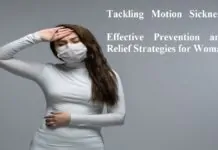It’s common to hear about practices people implement into their daily lives to take care of their physical health and well-being, but what about mental health?
Mental health is said to encompass three main areas of one’s well-being. These include your emotional well-being, your psychological well-being, and your social well-being. Taking care of your mental health is just as important as taking care of your physical health, and there are a number of reasons why.
Taking care of your mental health can help to support your physical health, manage stress, improve your performance at work or school, avoid burnout, increase confidence, have healthy relationships, and feel better overall.
Table of Contents
Daily Tips For Better Mental Health
Here are some things that you can do on a daily basis to take care of your mental health.
Prioritize Sleep
Sleep is absolutely critical and non-negotiable when it comes to taking care of your physical health and your mental health. Research shows that missing even 1 to 2 hours of sleep per night puts you at a higher risk of getting into a car accident, and a lack of sleep on an ongoing basis has a number of affiliated long-term health detriments.
These include but aren’t limited to an increased risk of depression, anxiety, and cardiovascular disease. Make sure that you’re using good sleep hygiene by limiting caffeine and alcohol, keeping a routine, sleeping in a cool, dark environment, disengaging from electronics and life stressors before bed, and doing anything else that helps you get a good night of sleep. If you struggle with sleep on an ongoing basis, reach out to a professional who can help.
Have A Daily Check-In
Check in with yourself on a daily basis to make sure that your needs are being met. Ask yourself, “How does my body feel?” and “How does my mind feel?” This is beneficial because it allows you to get in touch with yourself and use self-care in a way that’s both realistic and catered to you.
You might realize that you’re tense and need to stretch or use stress-relief activities, or you may realize that you’re overwhelmed and need to take a break or talk to someone.
Practice Gratitude
Research shows that gratitude improves both your mental and emotional well-being. That doesn’t mean that you have to be grateful for everything that happens to you, nor does it mean ignoring negative feelings when you are upset and telling yourself that you should “just be grateful for what you have because it could be worse.”
That is known as toxic positivity. Instead, it’s about taking the time to acknowledge what you are grateful for, for no reason other than just that. This could mean telling people in your life that you appreciate them, keeping a gratitude journal, or just taking time to recognize what you are grateful for on a regular basis.
Take Time For Social Connections
Social connections are imperative for our physical and mental well-being as human beings. That is part of why many say that mental health consists of social well-being, psychological well-being, and emotional well-being; all three of those things matter.
Even with the continuous restrictions due to the pandemic, what you can do is reach out to the people in your life regularly, primarily those who are positive people in your life. Think of the people you appreciate and the people in your life that make you feel good, and take some time to catch up.
Everyone needs to have a support system in place. If you don’t currently have a support system, you can build one. You can meet new people by taking a class, joining a group, or putting yourself out there in another way, but you can also consider peer support options such as support groups if applicable.
Additionally, don’t be afraid to reach out to a therapist if you struggle with social relationships in any way and need someone to talk to.
Use Positive Self-Talk
Using positive self-talk is a skill that will help you in many areas of life, including your personal mental health and happiness. When the going gets tough, it can be used as a way to reframe negative thoughts, and if you take the time to think positively or use what’s called a rational mind on a regular basis, it becomes more natural over time.
You can also use affirmations and take the time to think about what you like about yourself. Don’t take “nothing” as an answer; we all have positive traits, and yours deserve to be acknowledged!
Empower Yourself To Reach Out
When we have anything from a virus to a broken bone, we know to put in extra effort and take the necessary steps to take care of our physical well-being. It’s essential to do the same when you’re struggling with your mental health.
If you’re struggling with symptoms of a mental health condition or think you might be, are struggling with romantic relationships, friendships, or familial relationships, are experiencing stress related to work, school, or something else, or if anything else is going on in your life, know that you don’t have to keep it inside or go through it alone.
Talking to friends and using peer support options are great ways to support your well-being, but if you find yourself facing stress, burnout, overwhelm, relationship issues, familial concerns, parenting, self-esteem, trouble at work and school, feelings of sadness, possible symptoms of a mental health condition, or anything else that’s impacting you on a regular basis, it’s important to find a mental health professional who can help Like Confidant Health.
Finding Help
When seeking mental health care, the hardest part isn’t always reaching out itself. For many, it’s knowing how and where to find help.
To find a therapist, there are a number of routes you can take. You can contact your insurance company or check their website to see who they cover, use an online directory or search the web to locate professionals in your area, ask your primary care provider for a referral, or sign up for an online therapy website such as MyTherapist.
Online therapy is often more affordable than traditional in-person therapy or counseling, and MyTherapist makes it easy to sign up and get started. Whether you see someone online or in person, you deserve to take care of your mental health and find the support that you need.

















